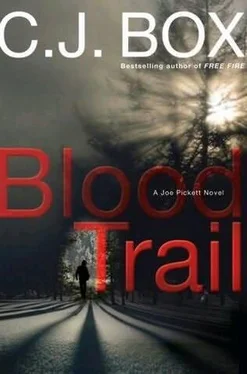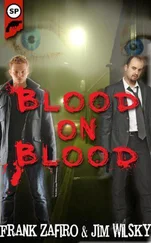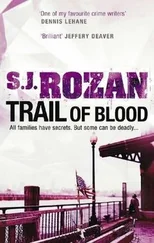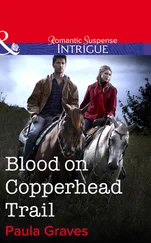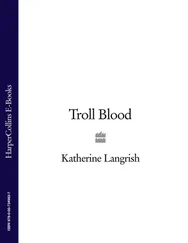WARREN TUCKER, the second victim, was a former Wyoming resident who owned a construction company in Windsor, Colorado, but still hunted every year in his former state with his son, Warren Junior, a high-school football coach in Laramie. Tucker Senior’s body was found the week before in the Snowy Range Mountains near Centennial. According to Tucker Junior’s affidavit, father and son were hunting elk from a camp they’d used for twenty years when the incident occurred. Senior took the top of a ridge while Junior positioned himself at the bottom, a thick forest between them. This was a strategy they’d used for years, and it had proved to be very successful. Elk in the area tended to stay in the black timber on the mountainside during the daytime but ventured out in the evening to graze and drink. Therefore, the herd would exit either over the top of the treeless bare ridge where Senior would get a shot at them or down through the bottom meadow where Junior was set up. Which was why he thought it was so strange, Junior testified, when he heard a single shot in the distance near the top of the ridge in the midafternoon because usually there was no action going on that time of day. He’d tried to contact his father by radio for several hours after he heard the shot, but there was no response. That in itself wasn’t cause for alarm, Junior said, because if Senior was stalking a big bull he might have turned his radio off to maintain silence. Senior was also getting more forgetful as he aged, and sometimes didn’t turn his radio on at all, which drove Junior crazy. But Senior had always shown up before, often with blood on his hands from harvesting his elk for the year. This time, though, when dusk came and went and he’d not heard anything from his father, Junior became alarmed. Junior was an experienced outdoorsman and knew not to set off into the timber in the dark to try to find his father. Instead, he wisely went the short distance back to camp and built a huge fire he hoped his father would see or smell, and kept trying to raise him on his radio. After a few hours, Junior started firing rifle shots in the air, three at a time, and waiting in vain for the sound of answering shots in the distance. None came. It was a very long night.
Junior contacted Albany County Search and Rescue. The county responded with a team at dawn, and with Junior they fanned out and scoured the black timber and the ridge. Unfortunately, it was Warren Tucker Jr. who found his father’s battered, naked, upside-down, eviscerated body on the bottom of an old rockslide.
According to the report written by the head of the search-and-rescue team, it was assumed at first that Warren Tucker Sr. had lost his footing at the top of the ridge, perhaps firing his rifle as he lost his balance, and cartwheeled 350 feet down the length of the old slide to his death. The sharp and abrasive nature of the scree on the slide had not only stripped the victim’s clothes away, but sliced through his soft belly. Somehow, a broken branch had been thrust into the victim’s body in the fall as well, exposing his body cavity.
It was only when the Albany County coroner determined that Warren Tucker had a bullet hole from a high-powered rifle beneath his left nipple that the incident changed from a horrifying accident to a possible murder.
Joe had now read the files, including the burgeoning Frank Urman file, three times. He could see how both the Garrett incident and the Tucker death could initially be classified as accidents. Only when the two were considered together was there a linkage, and it was still not a definitive one.
Joe felt an uneasy rumble in his stomach and looked up at the ceiling of the airport.
“Are you okay?” Robey asked.
“Yup.”
“What are you thinking?”
“Nothing good,” Joe said. He slid closer to Robey so they could talk without anyone hearing them. “So, let’s assume it’s the same killer.”
“We don’t know that yet,” Robey said.
“No, we don’t. But let’s assume. With Garrett, the killer places the body next to a dead deer in the back of a pickup. He also slits Garrett’s throat-just like the deer-to send a message that wasn’t noticed. With Tucker, the killer ramps up his sociology lesson by gutting the victim the same way a hunter field-dresses a game animal. Again, the message doesn’t get through because nobody is thinking of the deaths as murders, or linked in any way at this point.”
Robey nodded. “Go on.”
“Which must have frustrated the hell out of the killer, to spend all that time and energy making statements nobody gets. With Frank Urman, he doesn’t want to leave any doubt at all what he’s doing, what he’s trying to say. He not only shoots the poor guy, he guts him and hangs him from a tree like a deer or an elk.”
“So you’re saying we’ve got a socially conscious serial killer on our hands,” Robey whispered, looking over his shoulder to make sure none of the people wandering through the airport were directly behind him. “A guy who is so anti-hunting he’s killing hunters and treating their bodies the way a hunter treats big game.”
“Maybe,” Joe said.
“Which is why Klamath Moore is coming to Wyoming. Not just to protest hunting in general, but to support whoever is doing this.”
“Look around you,” Joe said. “Who do you suppose these people are here to greet?”
The blood drained from Robey’s face. “Oh no,” he said weakly.
“HAVE YOU ever fantasized about being hunted?” Joe asked Robey as the two of them stood outside so Robey could smoke a cigar. The United Express flight was minutes from landing, according to the last announcement. Joe could hear the faint buzzing of an airplane in the big cloudless sky, but he couldn’t yet see it.
“Say again?” Robey had taken up cigar smoking after going on a fly-fishing excursion to Patagonia, a fiftieth-birthday gift from his wife. Apparently, all the well-heeled fishermen down there ended the day with a cigar and Robey had followed suit. Now, he smoked not only after a day of fishing but whenever he was nervous.
“I think every hunter thinks about it,” Joe said. “I have. I don’t think there’s any way you can be out in the field with a gun or a bow and not at some point let your mind wander and fantasize about somebody hunting you the way you’re hunting the animal. I think it’s natural, just not something anyone really talks about.”
Robey took a short draw, then removed the cigar from his mouth and studied it.
“And I don’t think the fantasy is restricted to hunters,” Joe said. “I think every fisherman, hiker, camper, and bird-watcher has it at some time or other. Don’t tell me you’ve never had it.”
“Okay, I’ve had it,” Robey said reluctantly. “I remember getting that feeling recently in Patagonia. Sort of a chill that went all the way through me for no good reason. I looked all around and couldn’t see anyone except a couple of fishermen who’d become my friends. But I couldn’t shake it for hours.”
Joe said, “Maybe it’s come to pass.”
Robey made a sour expression. “Pope and the governor may really have something to worry about after all. If what we’re talking about turns out to be true, it’ll destroy the hunting and fishing economy in Wyoming and maybe all up and down the Rockies. Hunters will just stay home.”
Joe nodded. “To be honest with you, Robey, it’s not the hunters who stay home I’m worried about. It’s the hunters who don’t.”
Robey looked up.
“I’m worried about the guys who want to take this killer on. And believe me, there will be some.”
“I never thought of that.”
“You’ve never driven up to a hunting camp and looked into the eyes of some of these men,” Joe said. “They live for it, and they’ll die for it too. And don’t assume we’re talking about roughnecks and outlaws. There is a certain percentage of men in the world who would feel neutered if they couldn’t hunt. The way they see it, it’s all they have these days to prove to themselves they’re still men. It’s a one- or two-week validation of who they really are, or who they think they are. They’ll look on this situation as a personal challenge.”
Читать дальше
